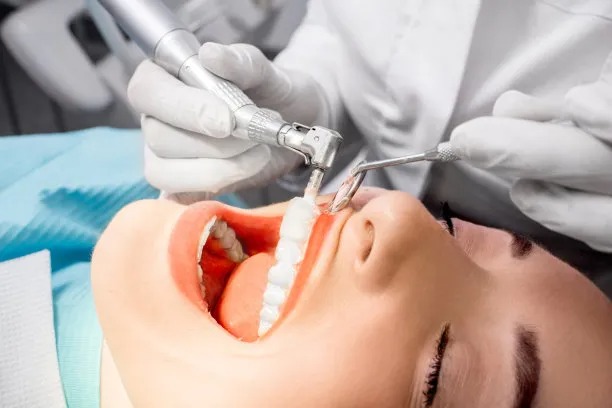Summary: Oral health is a fundamental aspect of overall wellness, influencing both physical and emotional well-being. This article explores the critical importance of maintaining good oral hygiene and the procedures involved in tooth extraction—a necessary intervention when dental issues arise. By examining the significance of oral health, the common reasons for tooth extraction, the steps involved in the extraction process, and aftercare options, readers will gain comprehensive insight into promoting better dental care. Emphasizing preventive measures and understanding treatment processes enhances personal responsibility towards oral hygiene, ultimately leading to healthier smiles.
The Significance of Good Oral Health

Good oral health is crucial not only for a bright smile but also for overall health. Regular dental check-ups and effective oral hygiene practices play a significant role in preventing various diseases. Poor oral health can lead to severe health complications, affecting the heart, diabetes management, and respiratory diseases. Therefore, prioritizing dental care is essential in fostering a healthier lifestyle.
In addition to physical health implications, good oral hygiene positively impacts mental health. Individuals with healthy teeth and gums often feel more confident, which can enhance their social interactions and overall quality of life. Conversely, dental problems can lead to pain, distress, and a decrease in self-esteem, making preventive care paramount.
Moreover, oral health influences nutrition. Healthy teeth are necessary for effective chewing, which aids in digestion. When dental issues arise, it can result in dietary changes that may lead to nutritional deficiencies. Thus, ensuring optimum oral health contributes significantly to overall well-being and enhances lifes experiences.
Common Reasons for Tooth Extraction
There are several reasons a dentist may recommend tooth extraction. The most common reason is tooth decay, where cavities become so severe that treatment options are no longer viable. In such scenarios, extracting the affected tooth helps prevent the spread of infection and preserves surrounding teeth.
Periodontal disease, characterized by severe gum infection, can also necessitate tooth extraction. If the disease has progressed to the point where the tooth is loose, removal may be the best solution to prevent further complications. Addressing oral health issues early can mitigate the need for extractions and maintain dental integrity.
Additionally, wisdom teeth often require extraction due to insufficient space in the jaw or complications during eruption. Removing these teeth when necessary can alleviate pain and prevent future dental issues, underscoring the importance of monitoring the development of these last molars.
The Tooth Extraction Process Explained
The tooth extraction process typically begins with a comprehensive dental examination. During this visit, the dentist will evaluate the tooths health through X-rays and an oral check-up. Based on the findings, a treatment plan, including the extraction procedure, is developed, ensuring the patient is informed and prepared.
Once the extraction is deemed necessary, the procedure often involves administering local anesthesia to numb the area, ensuring the patient feels minimal discomfort. The dentist may use specific tools to loosen the tooth in the socket and ultimately extract it. In complicated cases, surgical extraction may be required, which could involve making incisions in the gums to access the tooth.
Post-extraction, patients are advised on proper aftercare, including pain relief options and maintaining hygiene in the extraction site to prevent infection. Following these guidelines is crucial for a safe and speedy recovery, helping the patient return to their regular oral hygiene routine as soon as possible.
Aftercare and Healing Post-Extraction
After tooth extraction, proper aftercare is vital for healing. Patients are often provided with specific instructions on how to manage discomfort and swelling. Ice packs can be applied to the outside of the face to reduce swelling, and over-the-counter medications can alleviate any pain experienced.
Avoiding certain activities, such as smoking or using straws, is crucial to ensure the blood clot forms properly in the extraction site. These activities can dislodge the clot and lead to complications such as dry socket, which can elongate healing time.
As the healing progresses, maintaining good oral hygiene is essential, but care should be taken not to disturb the extraction site. Gently rinsing with saltwater after the first day can help keep the mouth clean. Following the dentist’s aftercare instructions contributes significantly to a comfortable recovery.
Summary:
This article has highlighted the importance of oral health and the processes involved in tooth extraction for better dental care. Emphasizing preventive measures and understanding the extraction process fosters a proactive approach to maintaining oral health. By acknowledging the interconnectedness of oral hygiene with overall health and well-being, individuals can take responsible steps towards a healthier life.
This article is compiled by Vickong Dental and the content is for reference only.
Vickong Dental
Vickong Dental is a large medical group established in Hong Kong in 2008 by professors from well-known medical universities in Guangdong and Hong Kong, as well as medical doctors from key national '985' universities (including Master's supervisors and senior professors). The chain of branches brings together expert dentists with PhDs and Master's degrees from Hong Kong and Mainland China, committed to providing high-quality dental treatment.
"Vickong Dental Practices the University Motto of 'Healing and Serving Society,' with a Stable Operation for Sixteen Years. It Has Been honored with Hong Kong Enterprise Leaders's Choice,' and is a Global Trusted Implant Center for the Nobel Implant System. Recommended by Hong Kong Metro Broadcast and Guangdong Television, it Serves Customers from Over Thirty Countries and Regions, Gaining the Trust and Favor of Citizens from the Guangdong-Hong Kong-Macau Greater Bay Area and Surrounding Cities.

Thousands of customers' unanimous praise
The most recognized and highly recommended dental service by customers in the Guangdong-Hong Kong-Macau Greater Bay Area
We Ensure You Receive Detailed Care and Attention Here
Hong Kong standards, Shenzhen prices, Your Trusted English-speaking dentists

Vickong Dental Medical-Grade Instrument Disinfection Process
Vickong Dental Medical-Grade Instrument Disinfection Process

Vickong Dental Chain: A Warm and Comfortable Environment for Treatment






Appointment Hours

Q&A
Why choose Vickong Dental?
Vickong Dental practices the university motto 「Medicine to Benefit Society」, with each branch bringing together highly qualified dentists with doctoral and master’s degrees from Hong Kong and the Mainland, and has maintained seventeen years of steady operation。Recipient of 「2024 Hong Kong Enterprise Leaders Brand」, 「2025 Hong Kong Enterprise Leaders Brand」, a Nobel Biocare Global Trusted Implant Center, and a brand recommended by Metro Radio Hong Kong and Guangdong TV。
To date, we have served customers from more than thirty countries and regions,earning exceptionally high word-of-mouth recognition and trusted recommendations from residents across the Guangdong-Hong Kong-Macao Greater Bay Area and surrounding cities
We have eight major branches in Zhuhai、Shenzhen,and a consultation and service assurance center in Hong Kong,so you can book a free consultation at any time for any questions,which is very reassuring.
If I do not accept the quotation after the CT scan, will I be charged??
No! As long as the actual treatment has not started, you will not be charged any fees.
Will there be any additional charges during the treatment process?
No, there won’t be any additional charges. Before treatment begins, we will clearly explain the treatment plan and its corresponding fees. Only after the patient agrees and signs the consent form will we proceed with the dental service.
Can I pay in Hong Kong dollars?
Yes. Vickong Dental accepts payment in Hong Kong dollars. The amount will be converted based on the exchange rate of the day, and the applicable rate will be clearly communicated to you in advance.
Can I reschedule my appointment at any time?
Yes. Please contact us via **WeChat** or **WhatsApp** as early as possible, providing your original appointment time and details, along with your preferred new date and time slot for rescheduling.













